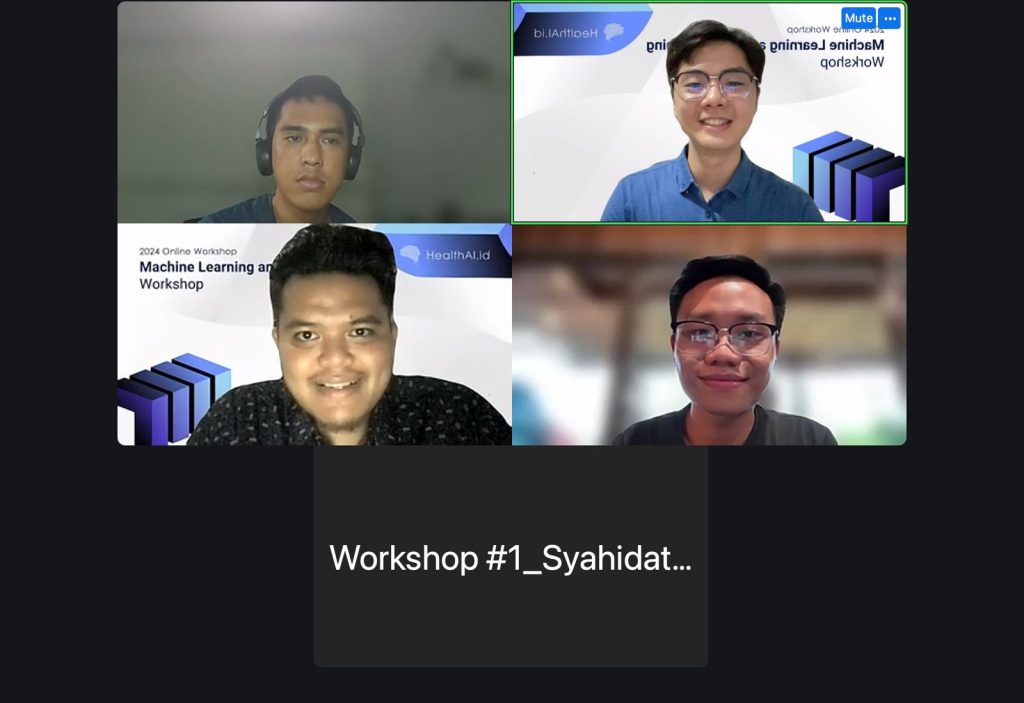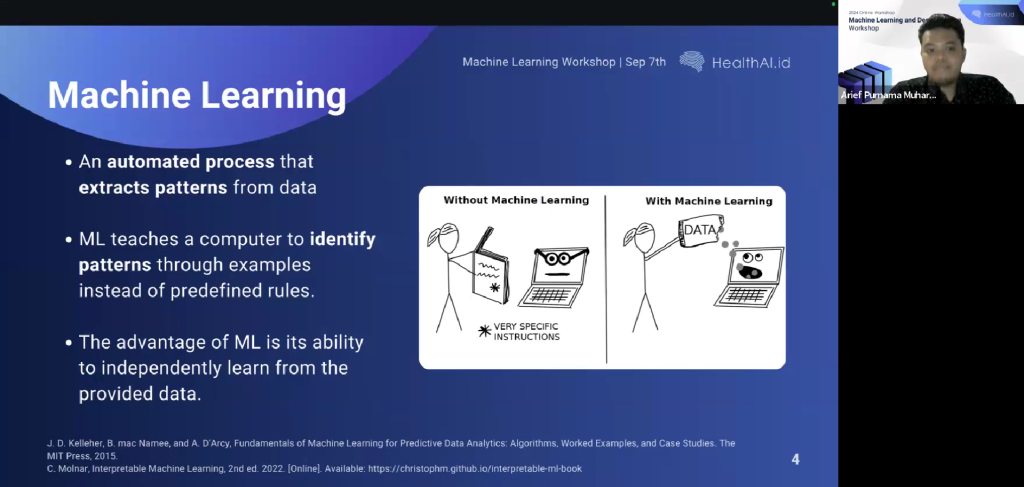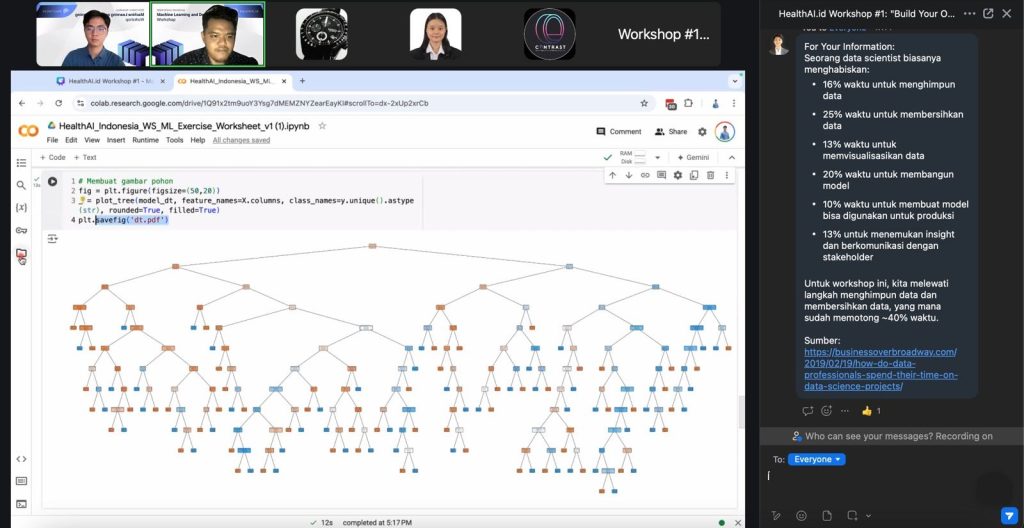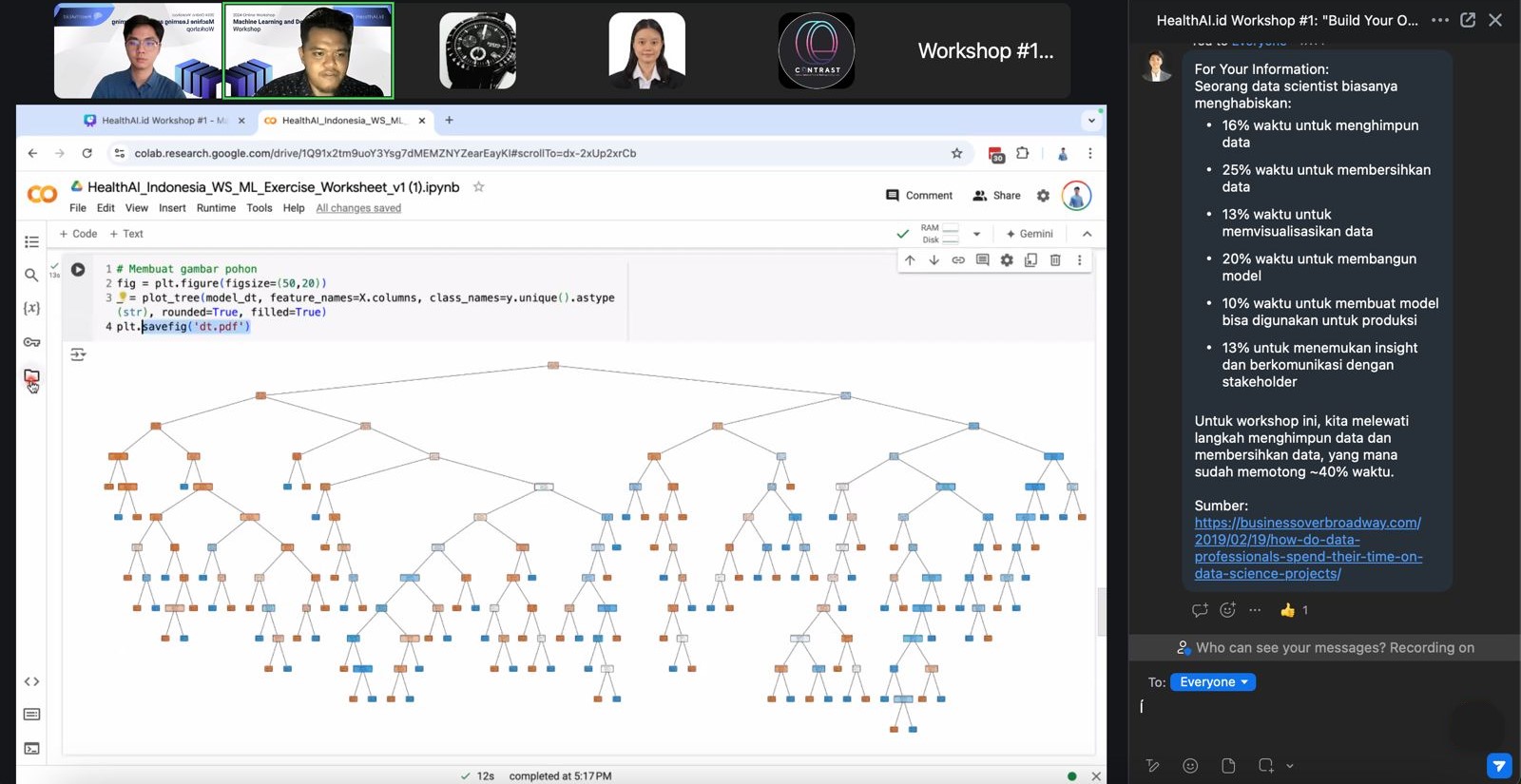On September 7th, 2024, HealthAI.id successfully hosted a comprehensive Machine Learning Workshop, designed to empower participants with practical skills in AI model development. This hands-on workshop, led by Dr. Arief Purnama Muharram, M.T., was attended by professionals and enthusiasts eager to delve into the world of machine learning, with a specific focus on healthcare applications.

Session 1: Reviewing Machine Learning Fundamentals

The workshop kicked off with a thorough review of Machine Learning fundamentals. Dr. Arief guided the participants through key concepts, such as supervised and unsupervised learning, algorithms, and model evaluation metrics. This foundational session was crucial in ensuring that everyone, regardless of their prior experience, was on the same page before diving into more technical aspects.
Session 2: Getting to Know Python and Google Colab
In the second session, participants were introduced to Python and Google Colab, two essential tools in the field of machine learning. Dr. Arief demonstrated how Python’s libraries, such as Pandas and Scikit-Learn, are used for data manipulation, analysis, and model building. Google Colab was highlighted as a powerful platform for coding and collaboration, offering the ability to run Python code directly in the cloud. This session provided participants with the practical knowledge needed to start building their own AI models.
Session 3: Hands-On Model Development

The final session was the most interactive, with participants getting hands-on experience in developing machine learning models using real-world datasets. Two datasets were used: Health Insurance and Diabetes Classification.
- For the Diabetes Classification task, participants explored two different algorithms: Decision Tree, Support Vector Machine, and Naive Bayes. These models were used to classify whether a patient has diabetes based on various health metrics.
- For the Health Insurance dataset, participants applied Linear Regression to predict insurance charges based on factors such as age, BMI, and smoking status.
This hands-on experience allowed participants to apply the theoretical knowledge they had gained, experiment with different models, and observe how changes in data and parameters affect the model’s performance.
Conclusion
The workshop concluded with a Q&A session where participants could seek clarification on any doubts and discuss their learnings. The success of this event lies not only in the knowledge imparted but also in the enthusiasm and engagement shown by all the attendees.
We look forward to organizing more such workshops to continue empowering healthcare professionals and AI enthusiasts. Stay tuned for our next event, where we will delve deeper into advanced AI techniques and their applications in healthcare.

Leave a Reply